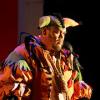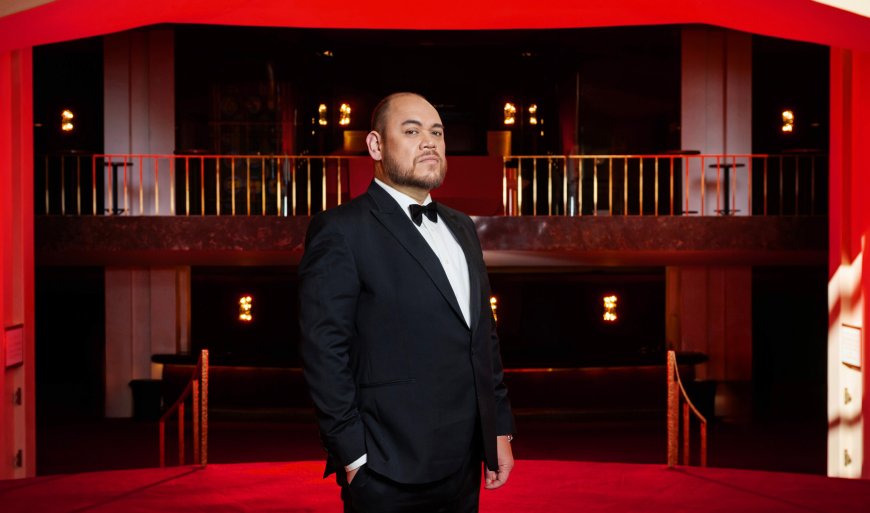
Baritone Quinn Kelsey claims that by the time he finishes singing the title role in Los Angeles Opera’s Rigoletto, which runs May 31 – June 21 at the Dorothy Chandler Pavilion, he will have performed the Verdi masterpiece some 150 times. Indeed, the Hawaii-born singer, now 47, continues to scale operatic heights, with The New York Times writing in 2024 that “in a world of interchangeable sounds, he is a true individual.”
Kelsey sang in his first opera, Verdi’s Aida, as a 13-year-old chorister at Hawaii Opera Theatre. He received a bachelor’s degree in music from the University of Hawaii at Manoa and apprenticed at a number of opera programs, including New York’s Chautauqua Institution, San Francisco’s Merola Opera Program, and Lyric Opera of Chicago’s Center for American Artists (now known as the Ryan Opera Center).
Today, Kelsey is in high demand at major opera houses around the world. Bowing at the Metropolitan Opera as Schaunard in Puccini’s La bohème in 2008, Kelsey made his role debut as Rigoletto at that house in 2011. In addition to operas and orchestra concerts, the baritone has been heard in recital at Carnegie Hall’s Weill Recital Hall and at The Kennedy Center under the auspices of the Marilyn Horne Foundation.
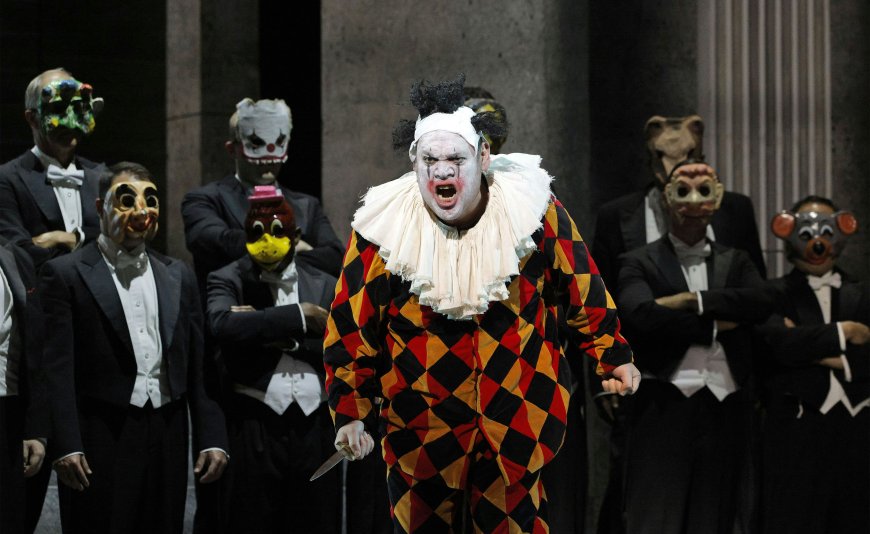
SF Classical Voice spoke with Kelsey over Zoom from Zurich, Switzerland, where he was once again performing Rigoletto. We took a deep dive into his love for Verdi, what it means to be a Verdi baritone, and why he prefers the classical repertory to contemporary opera. This conversation has been edited for concision and clarity.
It would seem there wasn’t much opera in Hawaii, but because both of your parents were singers, was opera a given for you?
I don’t think it was a given. My mother was classically trained — my folks met singing a duet in college — so music was very much the family trade. But my mom never pursued a career. She got a taste of it, and it wasn’t what she wanted. So she was an accompanist and choir director, but she also had as much of a career as a soloist in Honolulu as possible.
At one point, the four of us, my sister included, all sang in the chorus at Hawaii Opera Theatre, a company started in 1960. My mother joined in the mid-1980s, my father at the end of the ’80s. I weaseled my way in by the early ’90s, and in 1995, my mother sang Frasquita in Carmen. My dad and I were in the adult chorus, and my sister was in the children’s chorus.
Opera became a family thing. It was kind of, I won’t say elite, but the one very unique thing that we were all able to do as a family. It was something that nobody else we knew did.
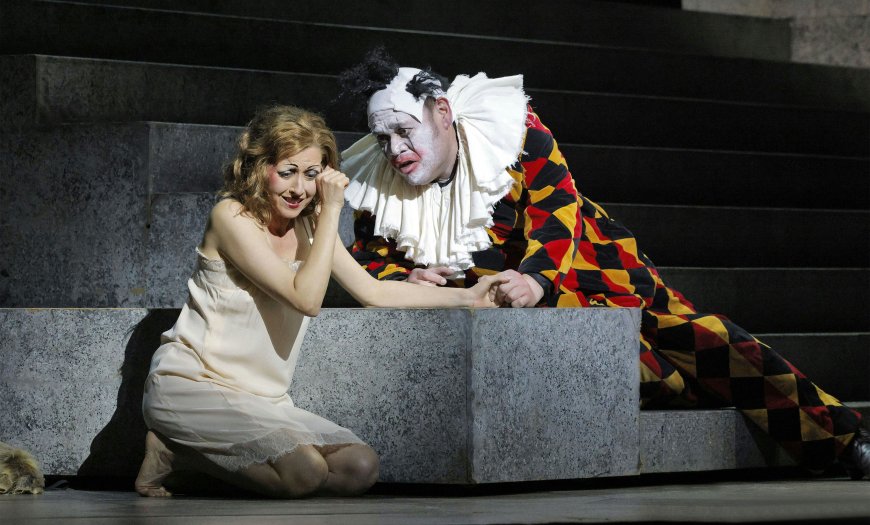
Now, about LA Opera’s Rigoletto: James Conlon is conducting, with Tomer Zvulun making his company debut directing the production, which updates the setting to Fascist-run Italy in the 1920s and 1930s. Have you worked with either of them before? And how do you prepare for a role?
It will be the first time [I meet] Tomer face-to-face. Conlon and I have worked together but only on a small scale. He conducted the two times I was hired by the Ravinia Festival. I sang two small roles in Otello and then Madame Butterfly. I’m looking forward to working seriously with him on a lead role.
Nowadays [my preparation] comes down to all of the training I had along the way in various programs and during the early years, 1997–1998, when Hawaii Opera Theatre started their studio. There hadn’t been that kind of studio in the middle of the Pacific [before]. It brought a ton of exposure to the opera world for all of us young singers.
[Today, I can thank] all of the people [who] helped me define what the hell my voice was doing and in what direction it was going.
It’s also about understanding my limits, what I can and can’t do. How much time my voice needs to wake up before a show. How strenuous I can be on the day of a show. Is the temperature outside affecting things? At this point, it’s all the experiences I’ve had for the last 20 years; it’s about knowing myself.
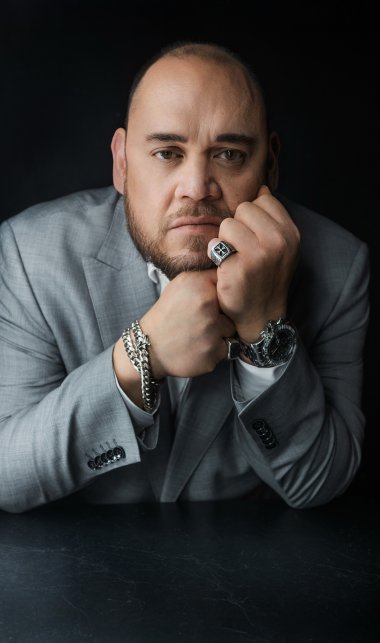
You and your partner, mezzo-soprano Deanna Pauletto, have a daughter who was born in 2023. Has becoming a father changed your take on Rigoletto, the jester who tries but fails to protect his daughter from the world?
Tons of people told me, “You’ll never know Rigoletto until you have a child.” I can see how that brings an extra layer to the character. It hasn’t hit yet, but I was prepared for it to.
The role that has hit — and I’ve only sung it once — is [Verdi’s] Simon Boccanegra. [That character] falls in love with a girl, and they have a child. He’s a pirate and always off at sea. She dies in childbirth, and the child is cared for by a nurse. Then, because he’s away from home so much — like what I do — something happens to the nursemaid. She disappears, and he runs into his daughter. But as regular opera stories go, neither knows who the other is. In the process of their scene, he realizes, “This is my child.”
For me, it was the sudden realization that Boccanegra’s child has survived and grown up and here she is standing in front of him. Crazily enough, that one hit me. I didn’t choke up, but I felt emotions. I’m sure it will come with Rigoletto — maybe when [my daughter’s] a teen — but for now it hasn’t.
What does it mean to be a Verdi baritone, and how is it different from singing, say, some of the bel canto roles?
It’s just a step up from bel canto, [which] Verdi built on when he composed his operas. A Verdi baritone has to be more than a regular lyric baritone. It requires a lot more powerful singing — the size of the voice, the color of the voice. It’s just the way that Verdi wrote. He required so much more from the baritone.
In May of next year, Hawaii Opera Theatre plans to present the world premiere of Kamalehua: The Sheltering Tree, composed by Herb Mahelona and with a libretto by Victoria Nālani Kneubuhl, and you’re scheduled to sing the lead role of Timoteo. What’s the opera about, and would you like to do more new operas?
It’s set in 1842–1845, the middle of the Hawaiian Kingdom, and it deals with issues of Hawaiians having to address their sovereignty from England. It’s told through the eyes of the [Hawaiian] king’s valet and best friend. I know the composer well, and I’ve met the director, Patrick Makuakāne, a hula choreographer and teacher. It’s the first time an opera company in Hawaii has put on a piece of this much cultural significance.
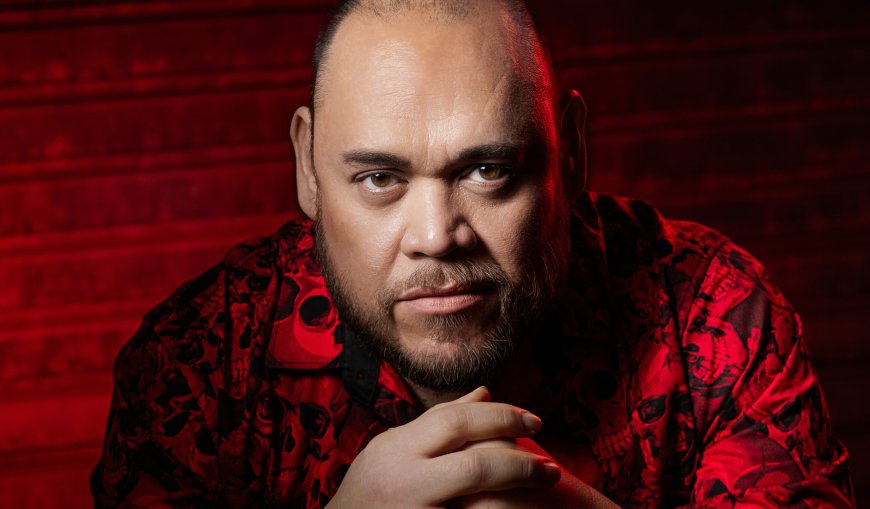
I wouldn’t be against doing more modern works, but I like music that sticks in your head, music that you can hum after hearing it for the first time. It can be hard to hold my attention if music is in a more avant-garde style of composition. On the other hand, whatever the piece was, I would need to make sure I really believed in [in it]. Whereas this classic stuff has been around so long, if you don’t know it all, you’re [still] familiar with the big tunes and the legacy it’s had over the years.
What do you like most about being an opera singer, and what are the challenges of the job?
Travel, being away from family, missing all kinds of events and [occasions] because you’re away on a job. It’s not an easy life.
[I remember] instances — which a bunch of opera singers would [probably] be able to relate to — where [we] as young singers were basically told, “Don’t be an opera singer.” Excuse me! I’m in this training program, lecture, whatever it is, to be inspired about opera. Don’t be [a singer] because it’s really hard? Young artists just leave the room stunned, but sometimes for a career in an art form like this, you need to have it slapped in your face. The music can really grab you and inspire you but take you for a wild ride.
On the flip side, if you do it right, you are awarded [this] wonderful opportunity to tell stories in a way they’re not normally told, to paint for audiences [these] environments that they just don’t get in their regular lives. You hope that’s why they come to the opera.
When it all comes together, that excites me every time. It’s a magical thing to be able to do what we do on the stage. I wouldn’t give it up for just about anything.




